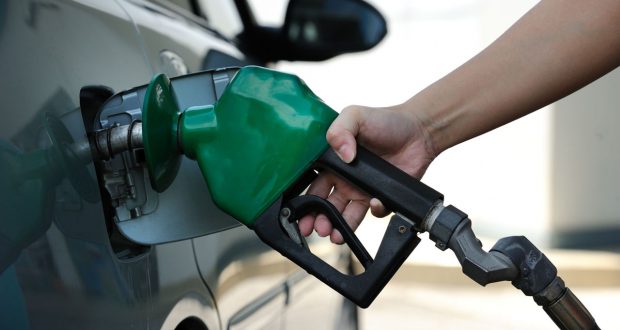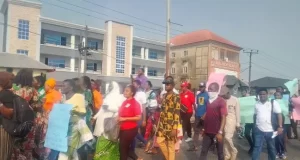The Nigerian Petroleum Downstream Industry, in collaboration with African Refiners and Distributors Association, in a virtual workshop outlined the key challenges and strategies to ensure a sustainable future for the petroleum downstream sector.
The workshop focused on risk management and selfregulation, effective change management, and communication and stakeholder engagement. The need for
proactive planning and implementation of the “adoption of gas” initiatives as a transition fuel towards achieving
The theme “Deregulation of the Nigerian downstream sector: The day after,” organized by the Nigerian Petroleum Downstream Industry in collaboration with the African Refiners and Distributors Association (ARDA)was held in Lagos.
The Authority Chief Executive, Nigerian Midstream and Downstream Petroleum Regulatory (NMDPRA), Farouk Ahmed, set the tone for the workshop with a goodwill message stating that the Authority shall allow free market pricing once the sector was fully deregulated.
The Executive Director, DSSRI NMDPRA, Ogbugo Ukoha and the Director, Policy Coordination, NPA Ghana were on hand to give insights on the role of the regulator in pricing, safe operation and enforcement in their presentations at the workshop whilst the Managing Director, CITAC Africa, Mr Gary Still touched on market liberalization or elimination of subsidies.
The ES, ARDA, Anibor Kragha shed light on products specifications – ARDA roadmap, regional initiatives (AU / ECOWAS).
DAPPMAN, IPMAN, PETROAN, NARTO and MOMAN shared their perspectives on risk management, best practices, and market expectations.
Alhaji Lawal Yusuf Othman, National President of the Nigerian Association of Road Transport Owners (NARTO), in his presentation, warned that the full deregulation of the downstream sector and complete removal of petrol subsidy will introduce a mix of opportunities and challenges into the operating environment.
The ES of DAPPMAN harped on sharing best practices. Mr. Gary Still, MD CITAC Africa, in his presentation explained that market liberalization means the removal of government subsidies and price controls on petroleum products, and allowing market forces to determine the price and supply of petroleum products.
National President, Independent Petroleum Marketers Association of Nigeria (IPMAN), Elder Chinedu Okoronkwo, who was represented by Mr. Mike Osatuyi, IPMAN’s National Operations Controller, revealed that the marketers are in full support of the government’s plan to embark on full deregulation of the downstream sector.
He warned Nigerians to prepare to pay up to N750 for every litre of petrol after the full implementation of the subsidy removal, adding that the pump price is likely to drop to around N500 if the Government encourages the Central Bank of Nigeria (CBN) to provide forex to marketers at the official rate.
Osatuyi also urged the government to channel savings from subsidy provisions to provide palliatives to the masses. He charged the government to be alert and sensitive to resentment from Nigerians.
Mr. Taiwo Oyedele, the Fiscal Policy Partner and Africa Tax Leader at PricewaterhouseCoopers (PwC), in his presentation, charged the government and the regulator to identify potential pitfalls that could trigger resentment from citizens before, during, and after the removal of the petrol subsidy.
According to him, deliberate public sensitization, industry engagement, and collaboration with civil society organizations are needed to aid public buy-in during the implementation of full deregulation by the government.
He said that in the course of implementing the policies, the government’s interpretation of its strategy must be issues-based and not confrontational.
 Financial Energy Review
Financial Energy Review





